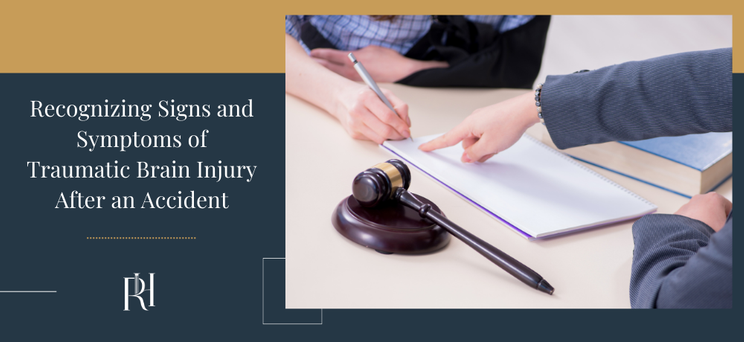Recognizing Signs and Symptoms of Traumatic Brain Injury After an Accident
Accidents happen, and sometimes they result in a traumatic brain injury (TBI). Identifying the signs and symptoms of a TBI early is crucial for timely medical intervention and a smoother legal process. In this blog, we'll explore the red flags that should prompt you to seek medical attention and legal support after an accident.
Altered Mental State - An Indication of Brain Injury:
Traumatic brain injury often manifests through notable changes in an individual's mental state. These changes might involve confusion, disorientation, memory problems, or difficulty concentrating. In some cases, a person might appear dazed or have trouble following conversations. This alteration in cognitive function is a key indicator of potential brain injury and should be taken seriously.
Headache - A Persistent Symptom of Brain Trauma:
Another common and persistent symptom of TBI is severe and unrelenting headaches. These headaches are often distinct from ordinary tension headaches and may not respond to typical over-the-counter pain relievers. This prolonged and intense head pain can be a consequence of the damage the brain has sustained during the accident.
Nausea and Vomiting - Brain Injuries and Gastrointestinal Symptoms:
Individuals with brain injuries may experience chronic nausea and vomiting following an accident. This can be attributed to the brain's disruption in regulating bodily functions, including nausea control. Repeated vomiting after an accident should be treated as a red flag, requiring immediate medical attention to assess potential brain injury.
Sensory Changes - Altered Perception and the Brain Injury Connection:
Sensory changes often accompany TBI. These alterations encompass symptoms such as blurred vision, tinnitus (ringing in the ears), heightened sensitivity to light or noise, and shifts in taste or smell perception. These sensory changes may not manifest immediately but can develop over time as the brain injury becomes more pronounced.
Motor Dysfunction - The Impact of Brain Injury on Motor Skills:
TBI can result in a range of motor problems, from weakness or numbness in the limbs to coordination difficulties or, in severe cases, paralysis. These issues arise because the brain plays a crucial role in controlling and coordinating bodily movements. Identifying motor dysfunction after an accident is vital, as it can be indicative of significant brain trauma that requires immediate medical evaluation.
Understanding the signs and symptoms of a TBI is vital for your well-being and any potential legal action following an accident. Don't hesitate to seek medical attention and legal guidance if you or a loved one experiences these indicators.
Get in touch with Rohan Haté litigation lawyers today! To learn more about our practice areas, click here. To contact us, click here or call us at (416)306-3817.
Book a free consultation today!
